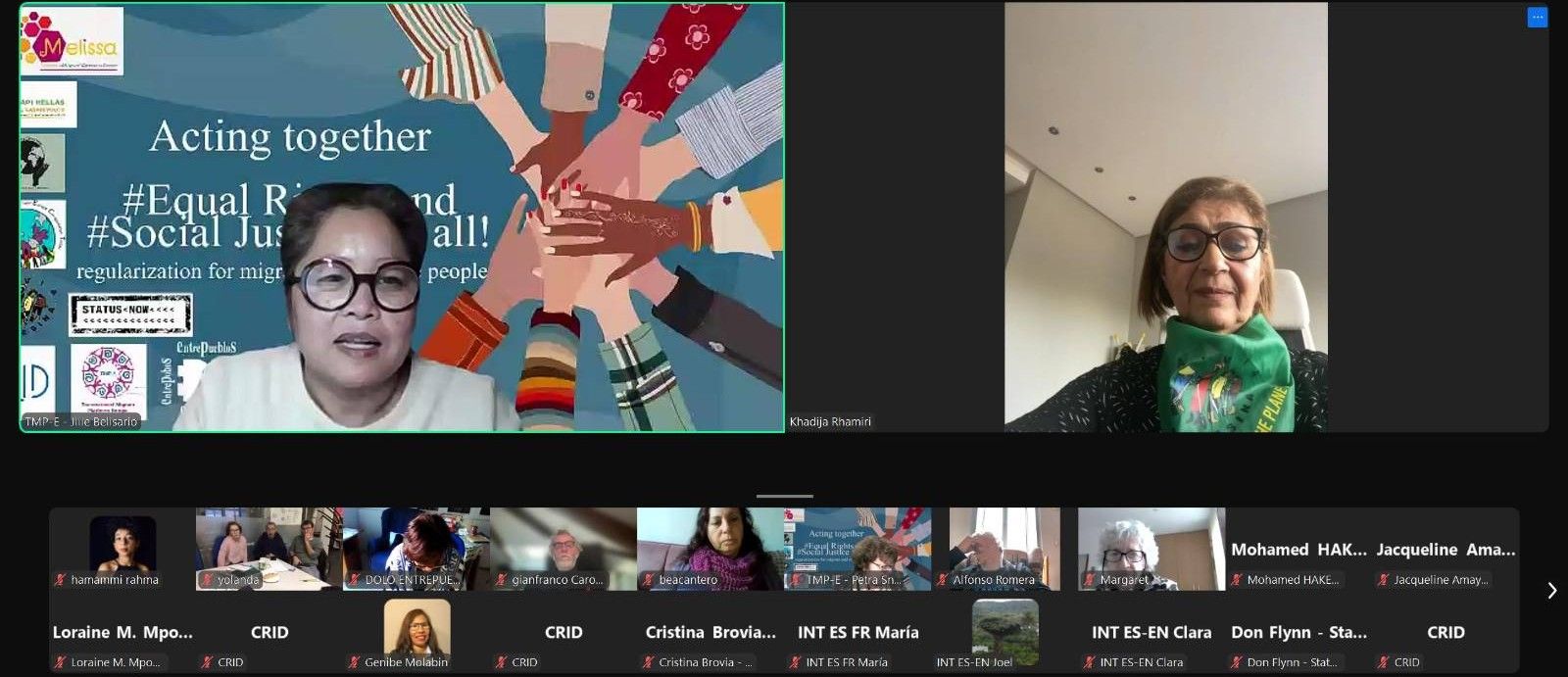18 DEC 2024 | International Migrants Day: Equal Rights and Social Justice for All

On December 18, La Via Campesina commemorates International Migrants Day, a significant occasion to honor the resilience, contributions, and struggles of migrants and refugee peoples worldwide—especially during times of crisis, intensified anti-immigrant policies, and oppressive racist regimes. This day serves as a powerful call to action for equal rights and social justice, reaffirming the fundamental truth that migrants’ rights are human rights!
In anticipation of this important day, La Via Campesina, in collaboration with various migrant and refugee peoples’ networks and collectives, hosted an online webinar on December 15, 2024. The event, titled “Acting Together: Equal Rights and Social Justice for All,” united organizations committed to advocating for the regularization of migrants and refugee peoples. This platform facilitated the sharing of insights, strategic planning for systemic change, and the strengthening of solidarity and collective action.
Highlights from the Webinar: Building Solidarity for Equal Rights and Social Justice
Today, the world grapples with a multitude of overlapping crises and forms of violence: genocides, wars, colonialism, climate change, social injustice, lack of opportunities, predatory capitalism, economic instability, political turmoil, and the exploitation and marginalization of rural communities. These interconnected realities disproportionately impact the Global South, exacerbating the hardships faced by its people.
In the face of these challenges, countless individuals are compelled to migrate, leaving behind their families, countries, and roots in search of better living conditions. They dream of dignity, secure livelihoods, and brighter futures for themselves and their loved ones. However, the harsh reality often starkly contrasts these aspirations. Migrants face criminalization, rights violations, and exploitation, particularly among rural workers.
“The continuous rise in global migration stems from the monopolization of territories, the destruction of peasant economies, and the impacts of colonial exploitation, wars, climate crises, and authoritarianism. These forces displace communities, while international institutions criminalize migrants instead of protecting their human rights.
Migrants’ struggles are deeply intertwined with the fight for food sovereignty. Existing frameworks, such as the Global Compact for Migration, fail to bring meaningful change or end the exploitation and mistreatment of migrants and asylum seekers.
In both transit and host countries, migrants face systemic discrimination. For instance, under Morocco-EU agreements, Moroccan women working seasonally in Huelva, Spain, endure discriminatory recruitment practices based on age, marital status, and physical appearance. Such practices perpetuate inequality between agricultural sectors and others. Women frequently work beyond legal hours without fair compensation, lack social protections, and suffer from sexual harassment.”, said Khadija Rhamiri (Morocco) – La Via Campesina
Many interventions highlighted the pressing issues and realities faced by migrants and refugees. In this context, networks comprising organizations and collectives have defined the following strategies and recommendations to work towards the full realization of the rights of migrants and refugees peoples:
- Self-Organization: Establish internal spaces that foster support and the development of effective strategies.
- Reinforce Transnational Alliances: Strengthen connections across borders to foster solidarity and enhance collaborative efforts.
- Gender Perspective: Integrate feminist and gender perspectives into advocacy efforts, recognizing the unique challenges faced by women and marginalized genders.
- Strategic Alliances: Forge partnerships with unions and organizations, emphasizing the importance of intersectional and transnational alliances.
- Amplify Voices: Actively listen to and elevate the voices of self-organized individuals to ensure their perspectives are heard.
- Decolonial Perspective: Embrace a decolonial approach in advocacy work to address historical injustices and systemic inequalities.
- Complementary Tools: Utilize a diverse array of tools, including legal actions, advocacy campaigns, and awareness-raising initiatives, to support migrant rights.
- Support Migrant Individuals: Provide multi-level support to those advocating for their rights and existence within our movements and networks, emphasizing the importance of collective and community responsibility.
- Reinforce Common Claims: Advocate for equal rights, justice, and freedom of movement as fundamental principles that must be upheld.
In celebrating International Migrants Day, we reaffirm our commitment to the rights of migrants and refugee peoples, while emphasizing the need for systemic transformation and solidarity. The issue of migrants is closely linked to our vision of the world, which is based on food sovereignty, agrarian reform, climate and social justice, and our opposition to war and colonization.
We must unite our voices to challenge the oppressive structures that drive forced migration, and ensure that migrants’ rights are recognized as human rights. Together, let’s work to build a future where dignity and security are respected for all by building our alternative Global Pact of solidarity for migrant and refugee peoples!
#MigrantRightsAreHumanRights
This post is also available in Français.
